Collaroy seawall: Residents continue with torturous process to get barrier built
Parts of a 1.3km seawall are under construction on the northern beaches but if you’re behind pace with the neighbours then you could be at bigger risk of huge seas and erosion.
Manly
Don't miss out on the headlines from Manly. Followed categories will be added to My News.
Residents whose properties were damaged in the 2016 storm say they’re delighted to see construction underway on the Collaroy, seawall but there’s a lot that can go wrong before the 1.3km barrier is completed.
Garry Silk, who has a home facing Collaroy Beach, said a seawall is currently being built in front of a number of properties to the north of his home.
He is working with nine other property owners to build their own wall and hopes they will be ready to start building in September.
He said ideally all the walls — being jointly funded by residents and the council — need to be in place as quickly as possible.
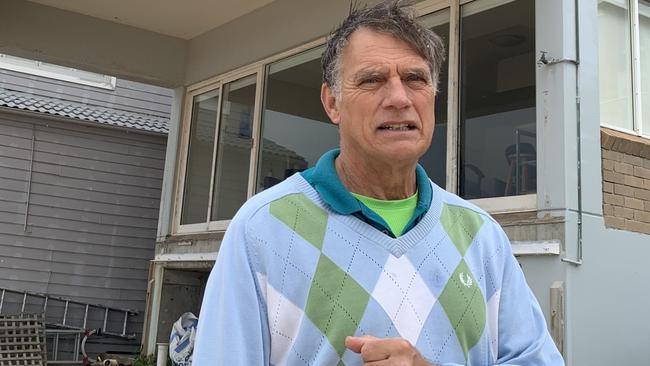
He said the concern was that if there is a situation where there are walls already built eitherside of people’s properties then in the event of a storm the walls could funnel the water towards the homes that are unprotected, making them “more likely to be vulnerable”.
Mr Silk said his group’s DA is currently out for tender.
“The quicker we get the wall in the better,” Mr Silk, 66, said.
“But it is a torturous process that we are required to go through.”
He said everyone in his section was on board with finances but he has found in the past things can fall down unexpectedly at the last minute.
“A lot of the residents are anxious,” he said.
“Last February and May people further north were losing parts of their gardens from the storms.”
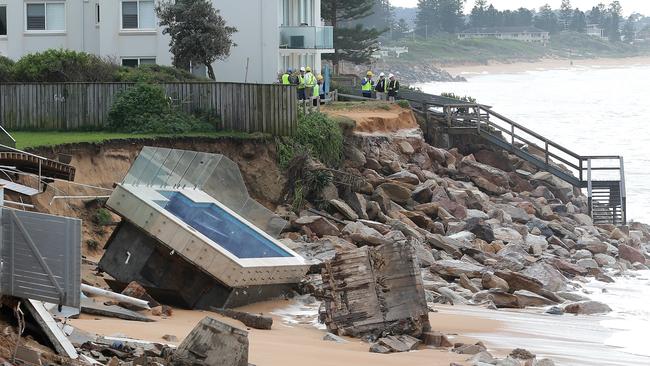
The total coast of the 1.3km protective barrier, including public and private assets, will be $24.85 million or just over $19,000 a metre.
Preliminary work on the first section of the seawall to be built to protect private properties — between Stuart and Wetherill streets — began in November.
The council has already built a 250m section of the wall, in front of the public “park and ride” car park stretching north from The Collaroy pub.
Sections of the sea wall will also be built at council expense to protect other public property including South Narrabeen Surf Club, reserves and areas where streets end at the beach.
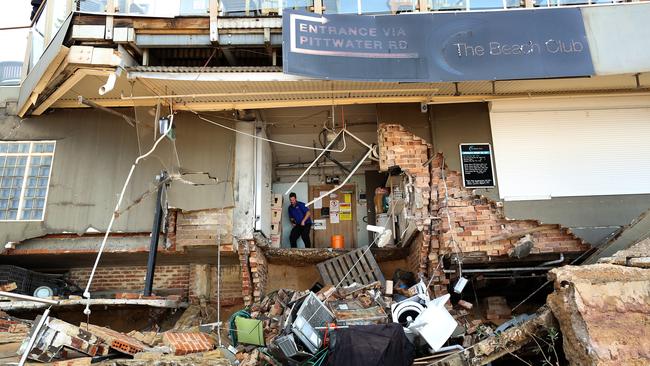
While there are 49 private properties along that stretch of beach, they are made up of 220
These pieces of public land are interspersed between 49 private parcels of land — a combination of single dwellings and blocks of apartments — that require protection.
private property owners will have to pay 80 per cent of the cost of the seawall in front of their properties.
individual residences, when the apartments are taken into account.
It is expected that the private property owners will pay $13,840,00, in total, to protect their homes from future storm surges.
The council said the public contribution for protecting public assets would be $7.55 million. The public will hand over $3.46 million to help protect the private land.
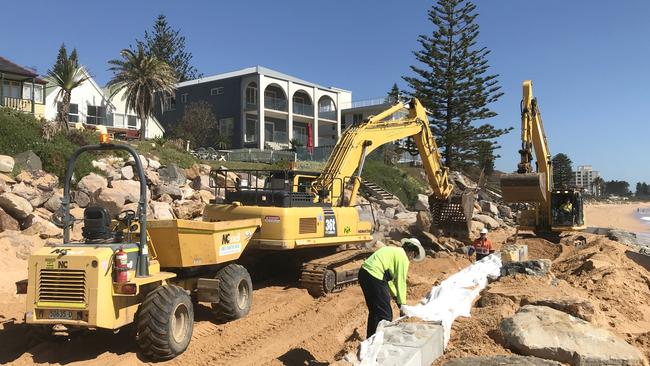
As part of the funding arrangements the council and NSW Government will each contribute 10 per cent of the cost of building the wall in front of private properties.
The council will begin the next stage of work on the seawall, to protect public land, once adjoining private works are undertaken.
So far, about 400m of the public and private parts of the wall have already been completed or are underway.
But difficulties have arisen because, under current legislation, neighbouring private owners need to work together in groups between the parcels of public land.
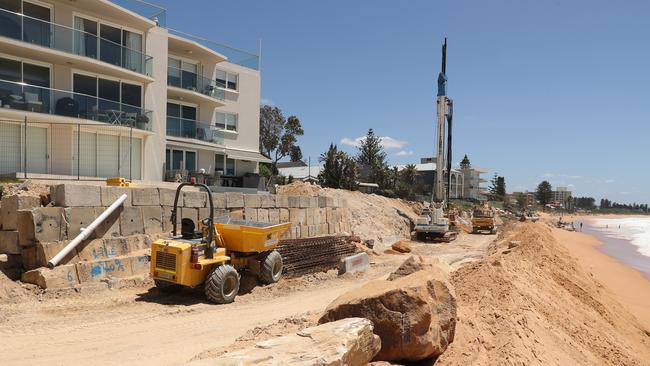
So far the council has approved six development applications for coastal protection works submitted by residents. These applications represent 23 of the 49 land parcels requiring coastal protection.
The council is hopeful that the remaining properties who have not submitted a DA will submit applications within the next 12 months.
Council CEO, Ray Brownlee acknowledged that protecting this strip of beach from coastal erosion “has been a long and arduous process with endless hurdles for both Council and residents to clear”.
“I am pleased to see construction for the first collection of residents who have been able to work together to get their portion underway, with further residents due to start in the coming months,” Mr Brownlee said.
“There are many complexities to this project and we are working with all residents to support them to be able to protect their properties.”




